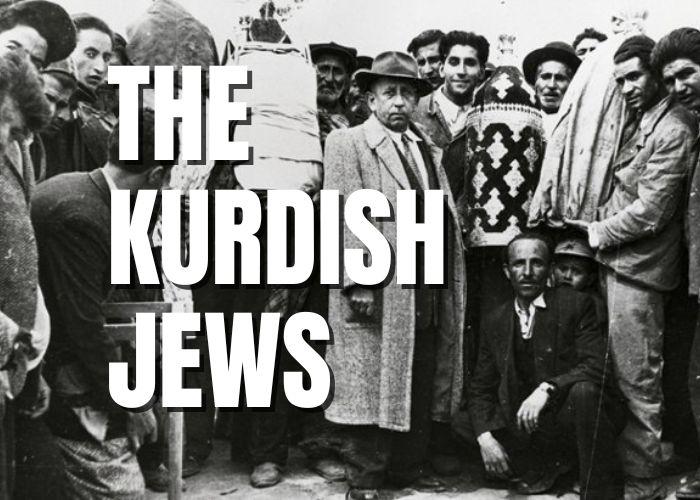The Kurdish Jews are a unique community that has a rich and fascinating history. Over the centuries, they have maintained their cultural identity and traditions, despite facing many challenges and hardships. In this essay, we will explore the history, communities today, culture, religious liturgy, and notable people and accomplishments of the Kurdish Jews.
History of the Kurdish Jews The history of the Kurdish Jews can be traced back to the Assyrian Empire, which ruled over the region that is now known as Kurdistan. The Assyrians were known for their cruelty and oppression, and many Jews fled from their rule. However, the Jews who remained in Kurdistan managed to maintain their cultural identity and traditions.
In the 16th century, the Kurdish Jews faced a new threat, as the Ottoman Empire conquered the region. The Ottomans were more tolerant of the Jews than the Assyrians, and many Jews thrived under their rule. However, in the 19th century, the situation changed again as the Ottoman Empire began to decline, and the Kurdish Jews faced increasing persecution and discrimination.
In the early 20th century, many Kurdish Jews migrated to Palestine, which was then under British control. This migration continued until the establishment of the state of Israel in 1948, which led to the mass migration of Jews from all over the world to Israel.
Communities Today Today, there are still small communities of Kurdish Jews in Kurdistan, particularly in the cities of Zakho and Dohuk in northern Iraq. However, the majority of Kurdish Jews now live in Israel, where they have established thriving communities in cities such as Jerusalem, Haifa, and Tel Aviv.
Culture The culture of the Kurdish Jews is rich and diverse, with influences from both Kurdish and Jewish traditions. Music and cuisine are particularly important parts of their culture.
Music Kurdish Jewish music is characterized by its use of instruments such as the saz, a stringed instrument, and the daf, a type of drum. The music is often accompanied by dance, and the lyrics often reflect themes of love, nature, and the struggles of the Jewish people.
Cuisine Kurdish Jewish cuisine is a fusion of Kurdish and Jewish traditions, with dishes such as kubbeh, a type of meat-filled dumpling, and stuffed grape leaves. Other popular dishes include sabich, a sandwich made with fried eggplant, boiled egg, and tahini, and jachnun, a Yemenite pastry.
Religious Liturgy The religious liturgy of the Kurdish Jews is unique and has been passed down through generations. The liturgy includes prayers, songs, and rituals that reflect the Jewish faith and the history of the Kurdish Jews. One notable aspect of the Kurdish Jewish liturgy is the use of the Aramaic language, which was spoken in the region during ancient times.
Notable People and Accomplishments The Kurdish Jews have produced many notable people who have made significant contributions to various fields. Here are just a few examples:
- Yitzhak Mordechai – Yitzhak Mordechai was a general in the Israel Defense Forces and later served as Minister of Defense and Minister of Transportation. He was born in the Kurdish city of Dohuk and immigrated to Israel in 1950.
- Shlomo Moussaieff – Shlomo Moussaieff was a prominent jeweler and gemologist who was born in Baghdad to a family of Kurdish Jews. He later moved to Jerusalem and established a successful jewelry business, which is still run by his family today.
- Avigdor Kahalani – Avigdor Kahalani was a decorated Israeli military officer who was born in the Kurdish city of Sulaymaniyah. He fought in the Six-Day War and the Yom Kippur War and was awarded the Medal of Valor, Israel’s highest military decoration. After his military service, Kahalani entered politics and served as a member of the Knesset, the Israeli parliament.
- Zakho Synagogue – The Zakho Synagogue is a historic synagogue located in the city of Zakho in northern Iraq. It was built in the 16th century and is one of the oldest synagogues in Kurdistan. Despite facing neglect and decay over the years, the synagogue was restored in the early 2000s and is now a popular tourist attraction.
Conclusion The Kurdish Jews are a unique and fascinating community with a rich history, culture, and traditions. Despite facing many challenges and hardships over the centuries, they have managed to maintain their cultural identity and contribute significantly to various fields. Today, the majority of Kurdish Jews live in Israel, where they have established thriving communities and continue to preserve and celebrate their rich cultural heritage.








Ohr HaChaim Yomi – Emor